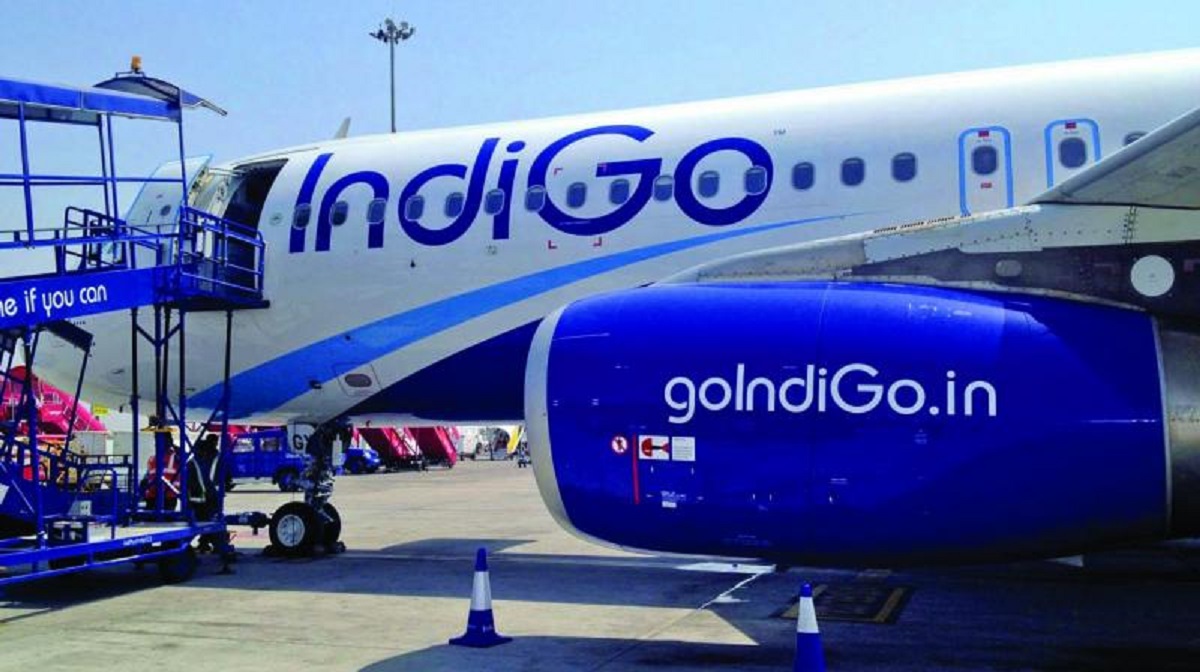IndiGo suffered yet another engine snag on Thursday after 6E-5384 took off from Mumbai. The Hyderabad-bound flight had to return to Mumbai soon after take off after one of its engines experienced high vibration, followed by a loud bang sound. The incident occurred at a height of 23,000 feet after which the engine had to be stalled and shut down. Carrying 100 passengers onboard, the IndiGo 6E-5384 flight landed safely on one engine. The incident has piled up to previous similar incidents and has made it 22nd such mishappening in a span of just 2 years.
The incident was acknowledged by a spokesperson of IndiGo 6E-5384 (A320), who said the pilot had observed an engine caution message and followed the laid-down standard operating procedures.
According to an official investigating the recent engine snag with IndiGo, low-pressure turbine of engine number 1 of the plane was found damaged. The engine had done 4,006 hours, he said, adding, the other engine was a modified one that had done only 1,198 hours and the plane had landed safely on that.
What is happening with IndiGo?
There has been a spike in the number of cases related to Pratt & Whitney (PW) engine snags on A320 Neos, and this has been reported for the past few days. Several reports have said such incidents are likely to continue until the snag-prone PW engines of the Neos are replaced. If the airlines and aviation regulators are to be believed, steps are being taken to ensure the safety of passengers, until the engines are replaced.
But, IndiGo needs to change about 137 unmodified PW engines on the A320/321 Neos in its fleet. This means of the 106 A320/321 Neos in IndiGo fleet currently, about 70 require an engine replacement.
According to a source, the Neos in India -- 106 with IndiGo and 41 with GoAir, have at least one modified engine each under their wings. So while the unmodified PW engine may stall inflight, the modified one will ensure the aircraft lands safely.
However, Pratt & Whitney’s (PW) snag-ridden engines for Airbus A320 have finally come under the scanner of the Directorate General of Civil Aviation, as IndiGo was on Friday asked to ensure that all the 98 Neos it currently has must get modified PW engines under both their wings. The deadline to change modify for having only modified PW engines was earlier fixed to January 31 has now been extended to May 31, 2020.
Comments from Pratt & Whitney’s (PW) on the same are yet awaited.
IndiGo engine snag: What the airline says
Since the IndiGo engine snag has now turned out to be a common phenomenon, the airliner has issued various statements on the problem.
On January 17, IndiGo said: “There are around 560 plus Neo operating with PW-1100G engines with 36 airlines. Globally these aircraft have logged over 20 lakh hours and over 10 lakh cycles (flights). New product and design are associated with issues that get manifested in-service. There have been issues with low-pressure turbine stage 3 of Pratt engines. Pratt has identified the root cause and developed a fix with modified low-pressure turbine blades made of Inconel. This fix has been implemented since May 2019. All new engines and spare engines currently being delivered are with modified LPT.”
“In order to ensure the continued safety of operation, Airbus and engines manufacturer and various regulatory authorities like DGCA in India, FAA in US and EASA of Europe have issued directives. Directives of DGCA are much more stringent than FAA and EASA. IndiGo Neo fleet is in full compliance with DGCA directives. At present, none of our Neo aircraft have both unmodified engines i.e. each aircraft either have both engines modified or at least one engine is modified. We have achieved that EASA guideline 2.5 months prior to the EASA deadline of March 31, 2020. Further IndiGo is working with original equipment manufacturer to ensure that 100% of IndiGo Neo fleet will have modified engines within the DGCA stipulated timelines which is much ahead of the FAA time line,” the IndiGo Jan 17 statement added.
Also Read | Hyderabad bound IndiGo flight makes emergency landing after mid-air glitch in engine
Also Read | IndiGo, SpiceJet, GoAir seek TDS relief for expat pilots

